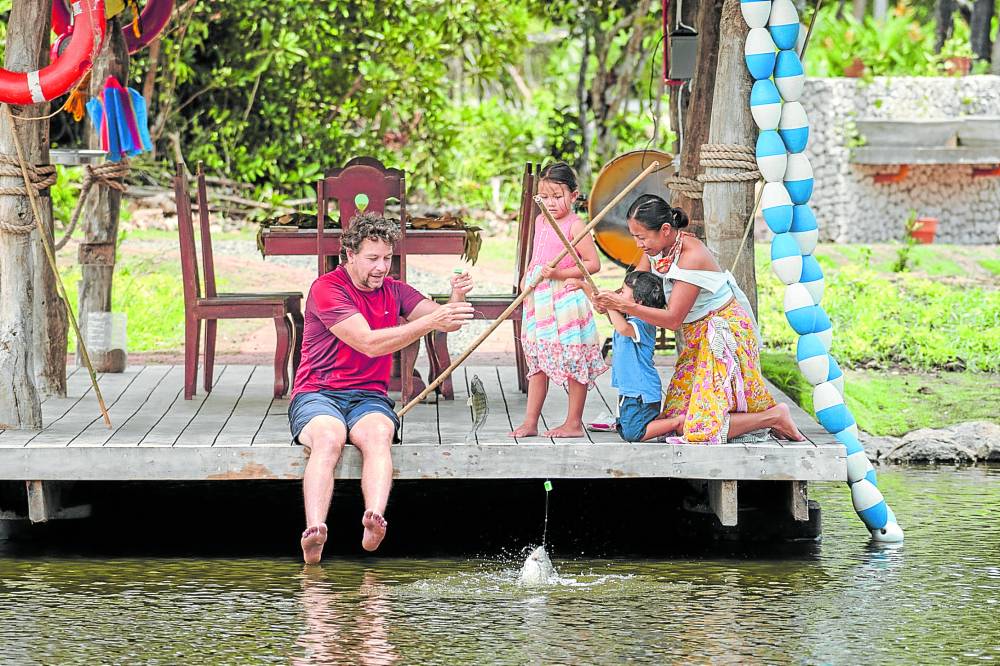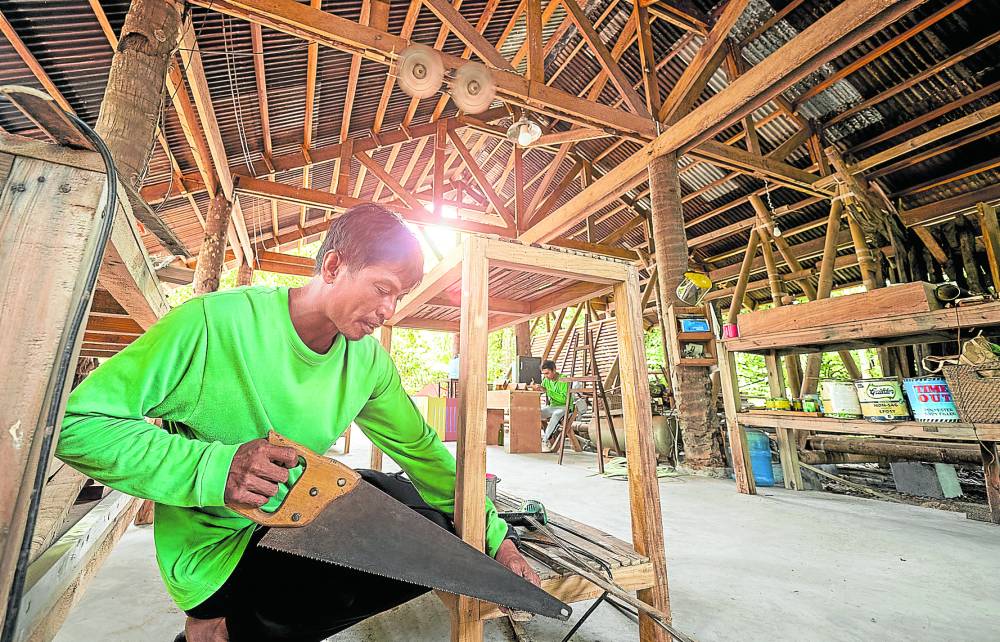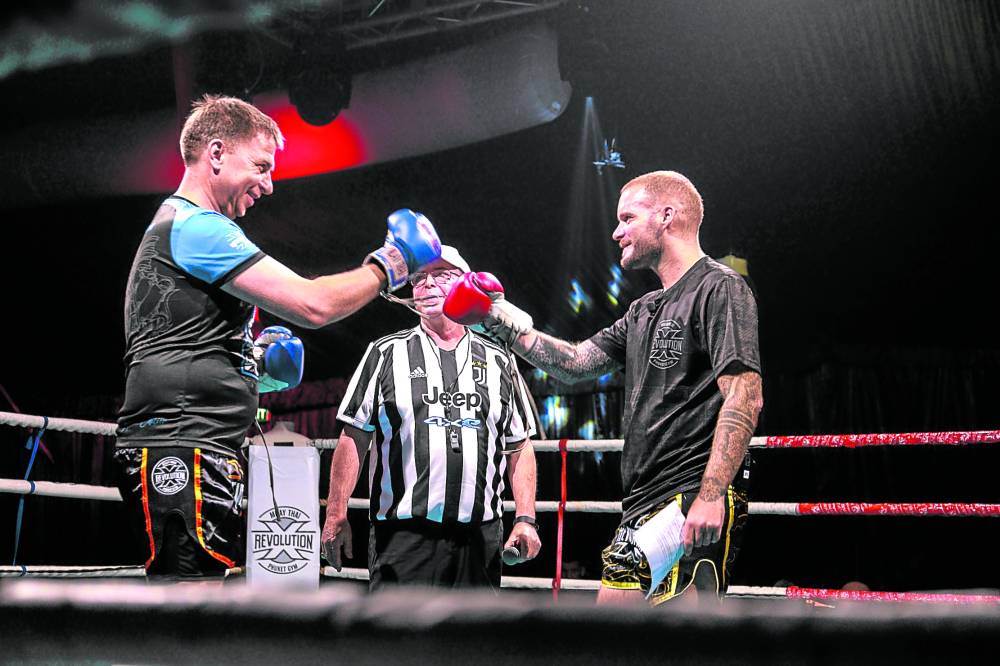Sustainable tourism (and how to end hotel toiletry hoarding)

SOUTH FARM This agricultural estate in Panglao, Bohol, provides the food and other ingredients needed by sister resort, South Palms. Guests can also visit for other activities such as fishing. —CONTRIBUTED photos
When the pandemic struck, the earth breathed, they said. As people stayed inside their homes, generally shy bird species came to freely perch on trees and majestic sunsets colored the skies with fiery hues. At a quiet resort in Bohol, flustered owners tended to turtle hatchlings along the shoreline, the first of such occurrence in 20 years.
As people scramble to go back to their lifestyles halted in early 2020, the world, as a backdrop, has changed. It was an accidental benefit from the crisis, but it was a challenge nonetheless to hoteliers and business owners around the globe to keep up with the times.
It’s that thing called sustainability, which to Greenview CEO Eric Ricaurte “is figuring out a way to do business better in various ways,” because “we can’t thrive as a planet.” “So we need to figure out a better way to do things that are different to develop our economies and our businesses.”
It’s a mouthful, but it was already a recurring theme even before the pandemic, more so during the fifth Phuket Hotels for Islands Sustaining Tourism (PHIST) held last Sept. 26 in Phuket, Thailand, where stakeholders such as Greenview gathered for the first time after two years of holding the event online.
Greenview designs the sustainability programs of businesses in the hospitality and tourism sector.
Perhaps a shot at humor, Ricaurte and the other officials of PHIST led by Phuket Hotels Association president Bjorn Courage faced each other onstage, not behind a white tablecloth-covered desk, but on a muay thai arena wearing Thai boxing attire and debating about how businesses could “fight” climate change. It was a kind of spectacle and pageantry that the Thais are famous for when organizing events, but the theme, after all, is something where one should not hold punches.
Courage says sustainability should be a “language” and more than the token “reusing of towels [for more than a few times]” during a hotel stay. Plastic straws are a thing of the past, and shampoo and lotion are now kept in dispensers instead of disposable packaging.
But sustainability should be more than a marketing ploy, he adds. “A lot of people do say they do certain things and then in hindsight, they’re actually not doing it. I think people are getting smarter and smarter [seeing] through that, [and] that sustainability [now] becomes more second nature [to them].”
Consumers are also learning how to decipher performance from authentic sustainability, according to Invest Islands CEO Kevin Deisser. He says he recognizes that younger people “would not go back to a hotel if they’re disappointed by the level of sustainability practices they can see … This shows a massive sign of changing the behavior in tourism.”

SYNERGY At South Farm, workers build furniture, signages for sister resort, South Palms. The savings unlocked from sustainability measures are used to incentivize workers.
Traceability
World Wildlife Fund Asia-Pacific regional lead in global seafood traceability Maggie Lee tells the Inquirer, “In this day and age, tourism without sustainability is no longer acceptable. What kind of product/service are we selling to our customers or guests, if we knowingly may damage the very environment we rely on? Sustainability is not only a selling point, but a necessity and prerequisite for our enjoyment of our beautiful planet, with or without the pandemic.”
But how would a consumer distinguish marketing tactics from legitimate care for the environment? “Sustainability without traceability is just a promise. Traceability provides the certainty that what was promised is delivered,” she says.
She cites, for example, the Global Dialogue on Seafood Traceability, a framework that allows consumers to know how or where the seafood they are eating on their plates at a restaurant or from a tin can had been sourced.
Expensive
But going “green” can be challenging for hotels and restaurants, hospitality industry stakeholders admit.
Ricaurte says production costs (say, more solar panels on roofs and movement sensors) can be expensive, but notes that benefits can nonetheless be far-reaching.
“Are production costs higher for sustainability? The general answer will be yes. However, in a similar way, there is an opportunity for a high cost and low cost for almost everything in a hotel that you buy. And it’s a matter of looking at what is the value, what is the difference [in terms of] profitability, guest satisfaction and so forth,” he adds.
The same could be said for consumers who are willing to pay more for sustainability, Lee adds.
“It definitely is much more important to the hospitality industry, especially high price-point establishments, to embody and provide seafood traceability for their guests,” she says, for example.
She adds Asia’s hotels still have room for growth when it comes to sustainability, but notes how the Philippines “sets the right example for the world.” She cites the closure of Boracay for six months in 2018 to allow its idyllic beaches to recover from overdevelopment.

‘BOXERS’ Bjorn Courage (left) and Kevin Deisser (right) deliver verbal blows as they provide insights on issues facing the hotel industry.
Bohol
Six hundred kilometers away from Metro Manila, sea turtles turned the beachfront of a resort into a birthing ground as resort owners scampered for ways to assist their nonhuman guests.
“We closed for a few months [during the pandemic] as well, and it was the first time in two decades that turtles [hatched their eggs] on our beachfront … We didn’t have the knowledge on how turtles do their breeding process,” Hope Uy, managing director of South Palms Resort in Panglao, recalls.
It was the unexpectedness of the situation that also shows how one must invest in sustainability, she says.
“Islands such as Panglao and Phuket feel environmental and social issues even more acutely than other destinations. Freshwater, waste disposal, coral bleaching; these are not only concepts—they impact our lives and operations on a day-to-day basis,” she says.
South Palm and its sister development, Panglao Shores, also boast of their dedication to sustainability through their close ties with the community. Aside from protecting the local coral reefs through a project called Project Sirena, the resort sources some of its food from a nearby farm that produces organic fruit, vegetables, honey and dairy products. They also do rainwater harvesting.
The resort is not yet self-sustaining, but the goal is to get 90 percent of ingredients from the farm.
The investments are beginning to pay off, according to Uy. Sustainability coming full circle, the savings they get from these various measures are used to incentivize the workers at the resort.
To define sustainability, according to Lee, therefore is to “think with the big picture in mind, so that each decision we make is a small change to help the environment.”
“With that said, for commercial establishments, sustainability is also a promise to customers.”
